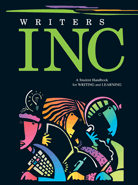Have you ever been working on something, and suddenly looked up, wondering how that word should be spelled? Or whether you’re using the right word, spelled in the right way?
It has come as somewhat of a shock to many of us to learn that “words” we have always thought were words, indeed are not. Not words at all. For one example, “alright,” which, according to my big American Heritage Dictionary of the English Language, is “Non-Standard,” and should be spelled all right – two words.
I love what this dictionary has to say in its usage note: “…the spelling of alright has never been accepted as a standard variant…the writer who chooses to risk that spelling had best be confident that readers will acknowledge it as a token of willful unconventionality rather than as a mark of ignorance.”
As I’ve already unabashedly admitted to you, I love reading the dictionary, as my dad used to say, “just for fun.” I’ve been wondering about the following words, looked them up, and thought you might be interested in what I found out:
Anytime
Sometime(s)
Oft-times
Anyway
However
Anyhow
Take a look: Which of these is one word? Two words? How should they be used, and when?
Anytime: Anytime (one word) means at any time (three words), and you can use it either way with confidence.
Sometime(s): Sometime(s) is a bit more complicated. Sometime (one word) indicates some indefinite time in the future, as in, “We’ll have to get together sometime.” But what if you really mean it? “We’ll have to get together some time after the first of the year,” (two words) indicating a definite point in the future.
Sometimes, on the other hand, means “now and then,” or “occasionally,” or “from time to time.”
Oft-times: Another good one for the dictionary lover! The first part, “oft,” means “often,” and comes from the Middle English, which comes from the Old English. (See what you can learn from the dictionary!) The modern, most-often-used word is oftentimes (one word) and means repeatedly, or frequently.
Oft-, when used today, is generally used in combination with another word, e.g., oft-times, oft-expressed, or oft-repeated, and oft-times is used by writers, and by academics as a tool of a more formal, or an academic tone. Note that a hyphen follows “oft-.”
Anyway(s): Anyway is one word, meaning in any way (two words) or manner; in any case; or nevertheless.
Anyways is “Non-Standard,” or not an accepted word.
However: One word, meaning in whatever manner or way (However it happened, it will work to our advantage.); or to what extent or degree (They went, however reluctantly, anyway.)
However can also be used to strengthen the word how (However did they do it?), or to mean nevertheless (It’s expensive; however, it’s well worth it!), or to mean “on the other hand.” (It was essential; however, it took hours!)
Anyhow: A great, uncomplicated one word, meaning in whatever way; or carelessly, haphazardly; or in any case; or nevertheless.
Whenever you think of a word you are not exactly sure of, write it down. When you have a minute, look it up – as dad said, “just for fun.”
Bring Gail to your workplace for an onsite workshop, coaching, or consulting. Or to work with your team to complete a writing project.
Copyright © 2013 Gail Tycer, All rights reserved.
 [
[